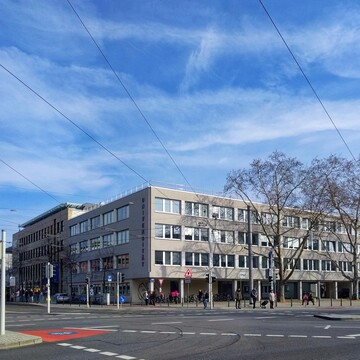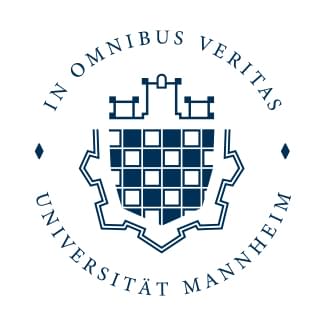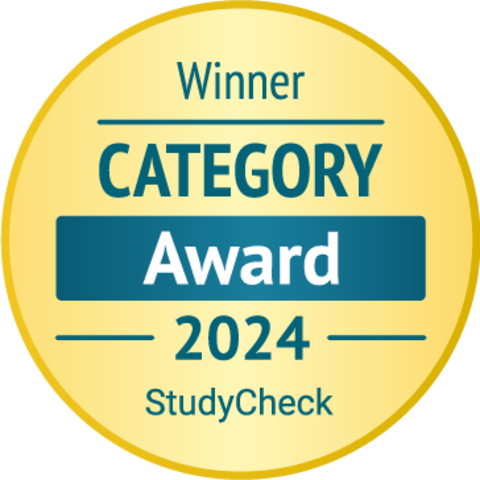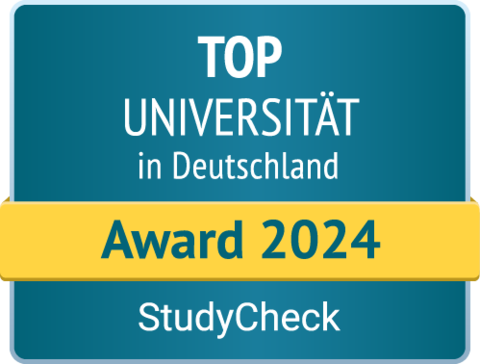Program facts and information
Degree: Bachelor of Science (B.Sc.)
Standard period of study: 6 semesters (= 3 years)
ECTS credits: at least 180
Language of instruction: German, some courses are taught in English
Language requirements: A good level of English proficiency is recommended; no proof of language proficiency is required.
If you are not a German citizen or do not have a German university entrance qualification (Abitur or equivalent school leaving certificate), you must prove German language proficiency at C1 level.Program start: Fall semester (September)
Academic calendarSchool: Business School
Semester fee: EUR 204.30 (more information)
Tuition fees for international students from non-EU countries: EUR 1,500
Tuition fees for a second degree: EUR 650Program overview
Developing a general understanding of the subject material is at the heart of the bachelor's program. This includes looking at national and company-related economic problems, and aspects of business law, economic law, and business informatics. Within this context, students address the following questions, among others: In which circumstances do pupils learn about the economy? What is the best way to design a learning environment for a business or a secondary school with a commercial focus?
In courses on math, statistics, and research methods, you will learn how to carry out and evaluate scientific studies. The program includes two internships, one at a company and one at a school. You can also choose from an extensive range of elective courses in a variety of subjects, such as English, Mathematics, and Political Science.
Why study Economic and Business Education at the University of Mannheim?
Economic and Social Sciences at the University of Mannheim repeatedly do well in rankings (take a look for yourself here). The bachelor's program in Economic and Business Education is taught at the Business School, which has been accredited by three international accreditation agencies: AACSB International (The Association to Advance Collegiate Schools of Business), EQUIS (European Quality Improvement System) and AMBA (Association of MBAs).
Career opportunities
With a degree in Economic and Business Education, graduates can work at a school. This is, however, not the only option open to them. They can, for example, teach at a company or work in education management. Graduates can also go into educational counseling, human resources management or development, and business development.
Completion of the bachelor’s program also enables students to pursue a master’s degree in Economic and Business Education or a similar degree. Upon completion of the master’s program and a subsequent Referendariat, graduates can move into the school sector and teach at a vocational school.
Required interests and skills
Program structure
Module catalog
The module catalog (see sub-item “Program structure / content”) gives you an overview of the courses and their content.Studying abroad
The International Office and the Business School can advise you on planning a semester abroad. A period of study abroad is not mandatory for students of this program, and usually extends the duration of your studies.Internships
Students of the bachelor's program in Economic and Business Education must complete two internships – one at a school and one at a company. The internship at a school lasts for two weeks and is completed at a secondary school with a commercial focus in Baden-Württemberg. Students complete this internship between the fifth and sixth semesters.The internship at a company can, for example, be done in a human resources department. It lasts for eight weeks and is completed between the fourth and fifth semesters.
The program includes seminars that prepare students for their internships and offer them support. Further advice on the internships at a company and a school is available.
Sample course schedule
This is how your course schedule for the first semester could look like.Continuing Education
Certificate programs
Strengthen your potential, deepen your knowledge, find solutions for challenges we will face tomorrow – there are many good reasons to think outside the box, get to know and try out new things even during your studies.At the University of Mannheim, you can do this in the “Studium Oecologicum” which focuses on sustainability. In our certificate program, you will acquire interdisciplinary expert knowledge which can help you to act ethically and to make holistic decisions.
Language courses
Making language learning easier: No matter if you want to learn Japanese, Hebrew, Spanish or Norwegian, take the Graduate Record Examination Test (GRE), The European Language Certificates (telc) or the TOEFL test – each semester, the University of Mannheim offers language courses and language certificates in more than 16 languages for students and non-university members, online and on campus!Further study
The following degree program is partly or fully available in English:
Mannheim Master in Management (M.Sc.)
The following degree program is (mainly) taught in German:
Application and selection
At the University of Mannheim, a traditional numerus clausus (within the meaning of a minimum grade required for admission) does not exist. In our selection process, we take numerous criteria into account. For more details, please check the selection statutes (see below). Be bold! Please do not hesitate to contact us if you need advice. We are looking forward to receiving your application!
In our selection process for the Bachelor's Program in Economic and Business Education, we take the following criteria into account:
- the grade average achieved in your university entrance qualification,
- work experience in a business, or as a teacher,
- extracurricular activities which are relevant to your application.
German language proficiency
If you are not a German citizen or do not have a German university entrance qualification (Abitur or equivalent school leaving certificate), you must prove German language proficiency at C1 level.Selection statutes
Under “Application and selection” we have compiled the most important selection criteria of the program for you. For more detailed explanations of the selection process and the legally binding requirements of the degree program, please refer to the selection statutes.If the program of study is currently not selective, you will receive a study place if you fulfill all admission requirements and apply in due time and form.
Application
- The application deadline for our bachelor's programs for the fall semesters starts on 1 June and ends on 15 July.

What it's like to study and live in Mannheim
Our Program Ambassadors share their experiences at the University of Mannheim and are happy to help you.

Still not sure where to head and what to study?
We offer additional information and advisory services for prospective students.







